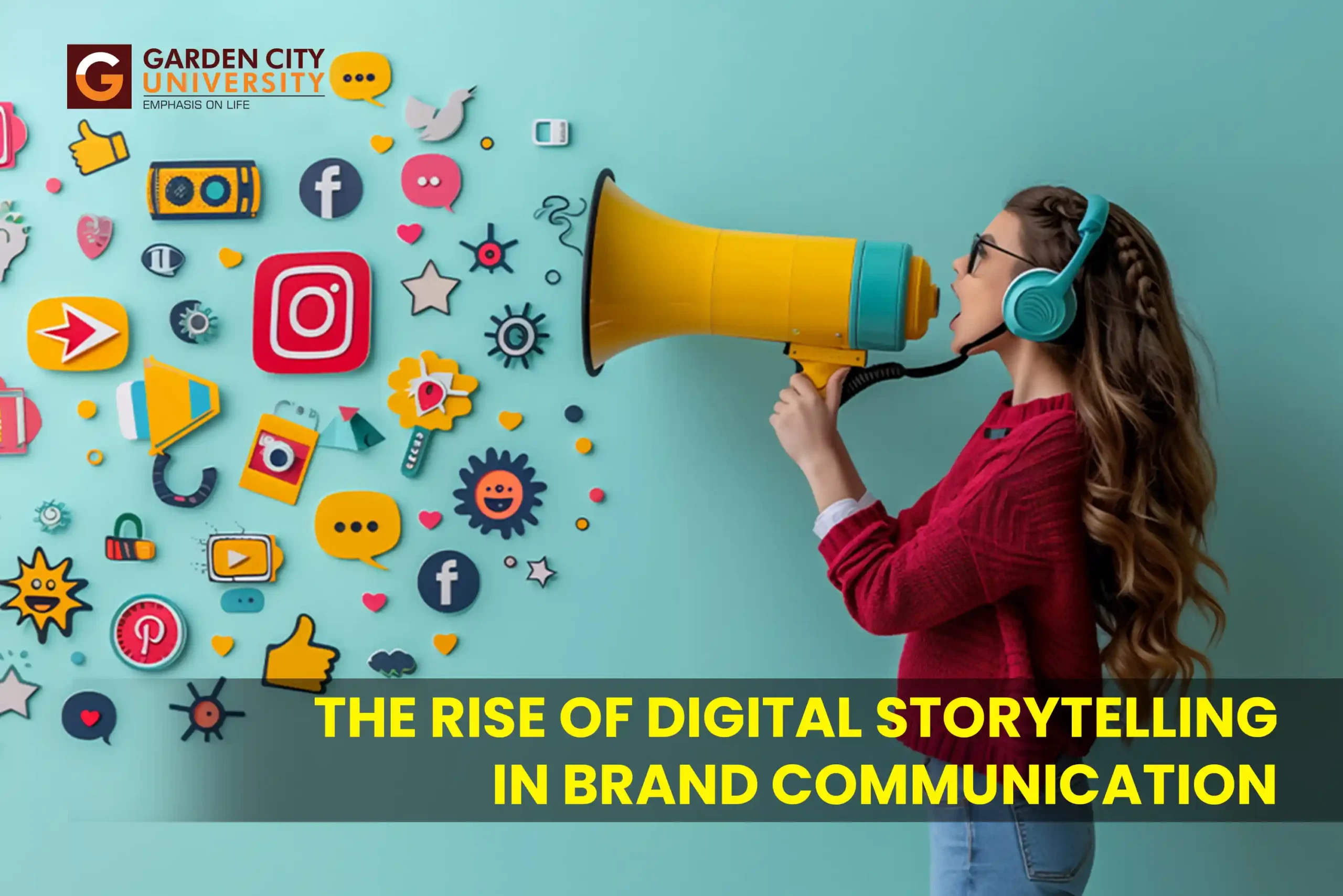Let’s face it: traditional ads don’t have the same power they used to. Nowadays, people want something more, a story that connects with them personally. Digital storytelling has become the secret sauce for brands looking to build real relationships with their audience. Instead of just shouting about products, brands are sharing narratives that feel authentic, relatable, and even inspiring. In this blog, we will explore why digital storytelling is booming, what tools brands use, and how you can learn this skill to stay ahead in the world of brand communication. 1. What Is Digital Storytelling, Really? At its core, digital storytelling is about telling your brand’s story in a way that feels human. It’s not just marketing jargon or flashy ads; it’s creating experiences through videos, blogs, podcasts, and interactive social posts that make people feel like they’re part of something. When done right, it turns passive viewers into active fans who want to engage and share. 2. Why More Brands Are Choosing Stories Over Ads Everyone’s scrolling through tons of content every day, so standing out is tough. Stories help brands cut through all the noise by being real and memorable. They build trust and give customers a reason to keep coming back. Plus, stories fit perfectly with the conversations people are already having online—whether that’s about culture, values, or everyday life. 3. The Go-To Tools for Telling Digital Stories There’s a whole toolbox for digital storytellers nowadays. Think YouTube and Instagram for videos, podcasts that let you have deep conversations, blogs that dive into details, and fun social media features like polls or live Q&A sessions. And don’t forget the behind-the-scenes stuff—tools that help track what’s working, so brands can fine-tune their stories and reach more people. 4. How Brands Nail Their Storytelling Game It’s not just about creativity; there’s some planning involved too. Successful brands spend time figuring out what message they want to share, who exactly they’re talking to, and where those people hang out online. Then they pick the right formats and keep adjusting based on what the data tells them. It’s a smart mix of art and science. 5. Why You Should Learn Digital Storytelling If you’re aiming to excel in the fields of media, visual communication, or brand storytelling, Garden City University in Bangalore offers specialised programmes that provide a strong professional edge. Their B.A. English & Journalism, M.A. Journalism & Mass Communication, B.Sc. Visual Communication and M.Sc. Visual Communication are designed to blend creative expression with practical training on the latest digital and media tools. With a curriculum aligned to evolving industry demands and the Industry Connect platform, students benefit from direct interaction with professionals, mentorship opportunities, internships, and live projects, ensuring they graduate with both knowledge and real-world skills. FAQ What makes digital storytelling different from regular advertising? Digital storytelling focuses on engaging people emotionally with narratives rather than pushing straightforward ads. Why is storytelling so important for brands today? Because stories build trust and connection in a way that traditional ads can’t. What platforms work best for digital storytelling? YouTube, Instagram, podcasts, blogs, and interactive social features like stories and lives. How can I get started with digital storytelling? Learn about your audience, experiment with video and audio tools, and practice creating engaging content. Will mastering digital storytelling help me find a job? Definitely! Brands want people skilled at connecting with audiences in this digital-first world. Conclusion Digital storytelling isn’t just a trendy phrase—it’s changing how brands connect with people. As brands shift from shouting to sharing, knowing how to craft a good story across digital channels is a game-changer. Whether you’re an aspiring marketer, journalist, or content creator, this skill opens doors to exciting career opportunities. Taking courses at places like Garden City University Bangalore that combine creative storytelling with hands-on digital training can set you up for success in today’s fast-moving media landscape.


